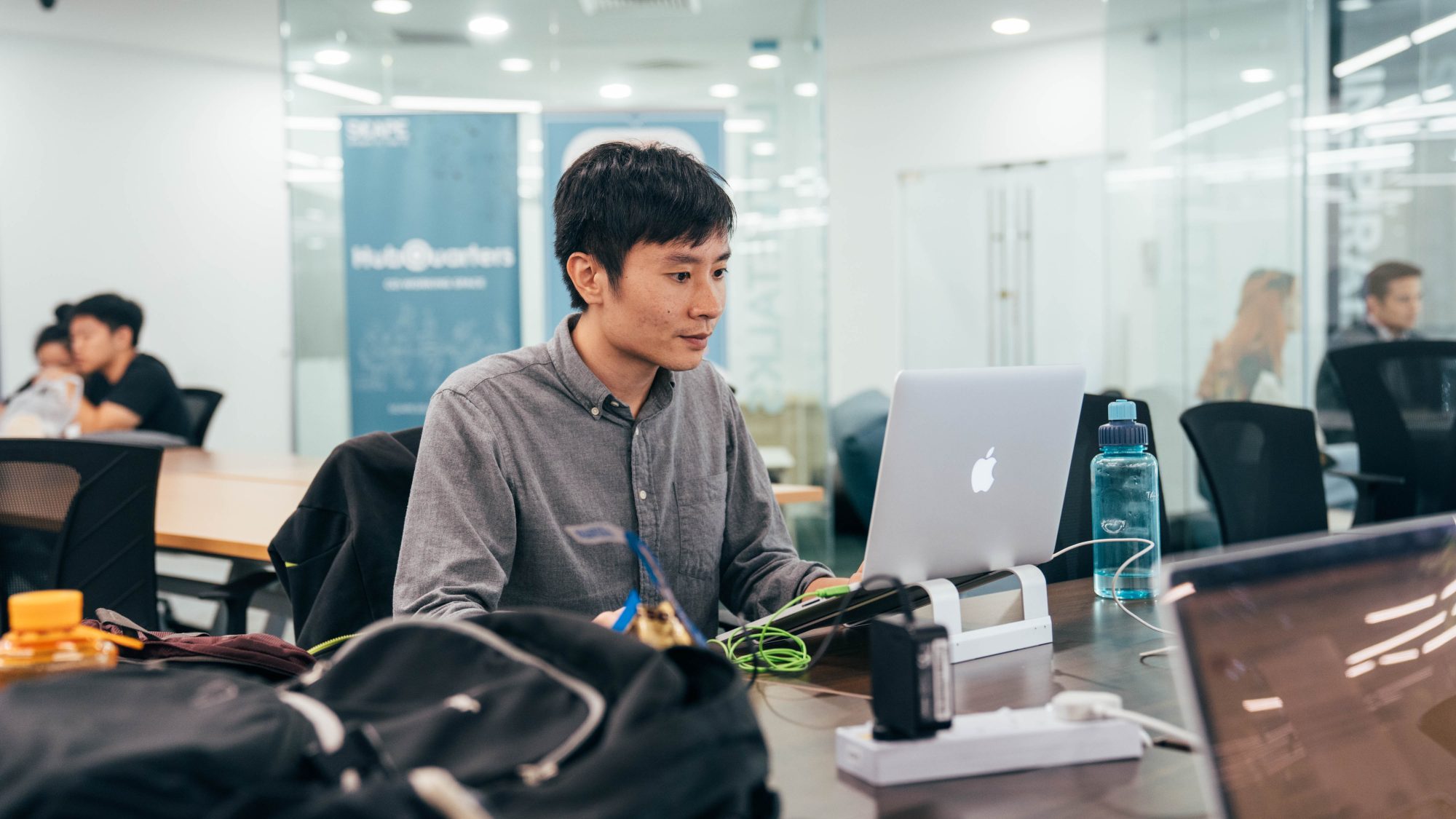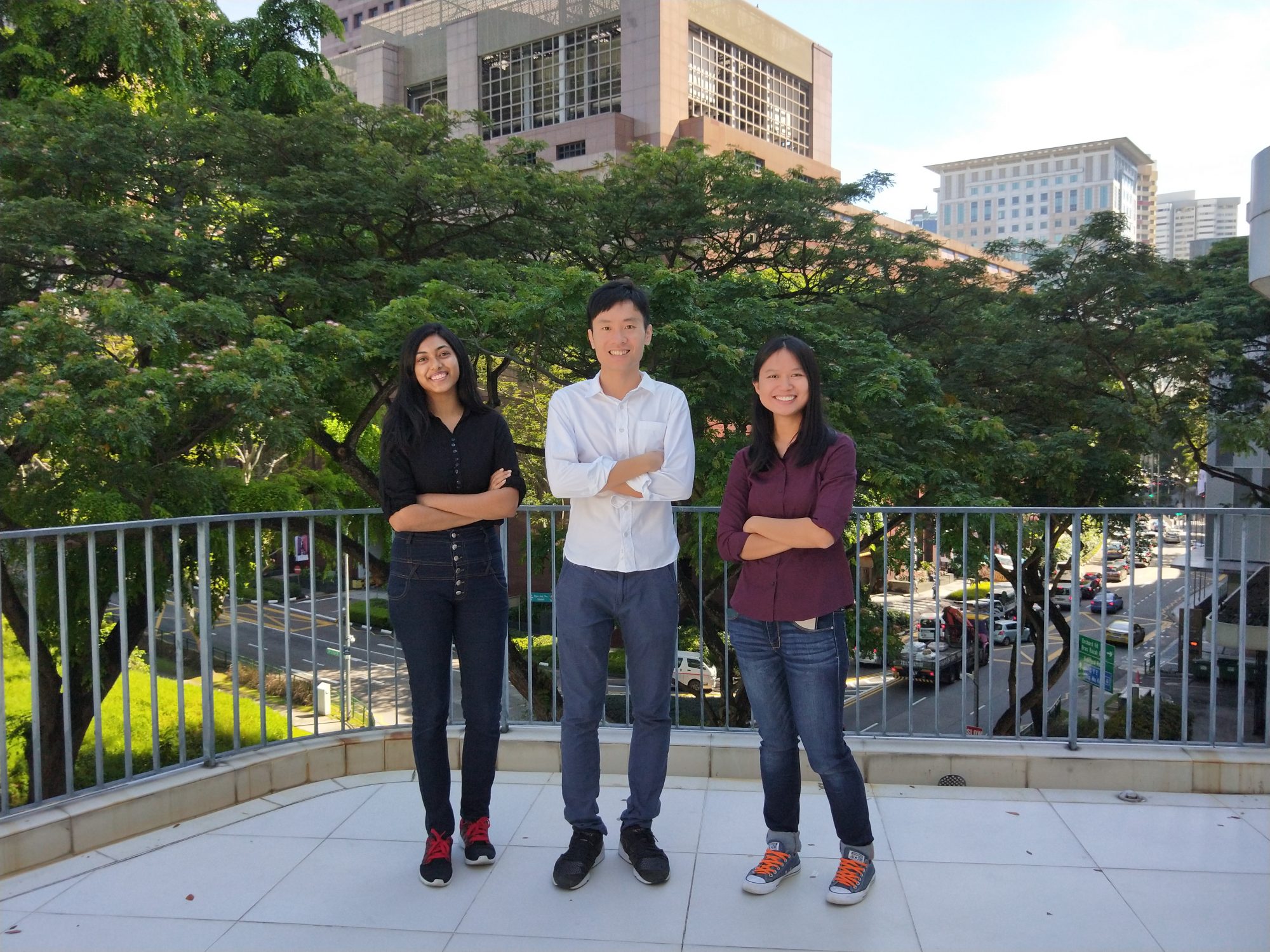For many Singaporean parents, it's a dream to become to see their child graduate from a local university with a law degree.
It's often a foregone conclusion that said child will go on to sit the Singapore Bar Examinations, pass, and become a practising lawyer.
It may not be hard then to imagine the horror that would have flashed across the minds of Chan Yuk Lun's parents in 2014 when he told them he was forsaking all that to concentrate his efforts on a fledgling online platform.
"My parents didn't really like it," he says.
After graduating from Singapore Management University's (SMU) law school, they had hoped that Chan would at least sit for the bar, the examinations one is required to pass in order to practice law in Singapore.
"I think they think that maybe it's a safety net or something like that. But to me, I didn't think that it was much of a safety net. And if it wasn't a safety net then it was more of a waste of time and money."
Five years later, the 30-year-old entrepreneur now introduces himself as the founder of Singaporelegaladvice.com, which he tells me is the "one-stop legal platform in Singapore":
"We help to facilitate Singaporean's in finding easy to understand solutions to their legal problems, in a world that is not easy to understand and potentially expensive."
This means doing things like publishing articles that help make sense of new laws in Singapore, helping to link users up with lawyers, and providing legal templates of frequently-used business agreements that users can download for free.
Starting as a uni student's blog
Today we're chatting at his office, a co-working space located at *Scape in Orchard.
As far as co-working spaces go, it's fairly stripped back. A couple of long tables with chairs on either side, a couple of glass-enclosed meeting rooms, a high table, and a two couch and coffee table combo tucked way by the entrance.
It's neither the drab cubicle-style office that I imagine many of Chan's law school buddies to now be working in, nor is it the epitome of hipster luxury that you see in adverts for other co-working spaces.
The particular long-table that Chan and his colleagues work at features laptops, water bottles, and backpacks strewn across its wooden veneer — not too dissimilar to what his working environment would have been when he first set the website up as a student with a friend in SMU circa 2011.
"Before I'd entered uni I did some small project with friends that was a travel blog. I just thought, 'okay I could apply that to law as well'."
 Photo by Andrew Koay
Photo by Andrew Koay
In its early stages, Chan would publish information that he had picked up from his law classes; where free legal clinics could be found, or basic information about writing a will or getting a divorce. There was also the odd commentary on the latest news.
"Those that were family-related did well," he says.
"Like divorce?" I probe.
"Yeah, that's what people were searching for. And actually those on sex did pretty well as well."
"Sex?"
"Like 'what's the legal age for sex in Singapore'," he replies with a chuckle.
Seeing possibilities
Other than serendipitously exposing the state of Singaporean romantic life, Chan's humble blog began to see encouraging numbers.
The earliest records he has show that by the end of his time at university the blog was playing host to around 27,000 monthly visits.
It was also starting to make some money.
And that's when the gears started to click in Chan's mind.
"There was a possibility of making a living. I mean it wasn't making a lot, but it was making a bit. Like a few hundred dollars a month. And I saw that if I made some changes to the website... it could potentially generate more money and it could be a living."
The well-trodden path
Yet while there was the opportunity to expand the blog into something more, Chan already had a path laid out in front of him.
"Up to year three and year four (of university), I thought I would be a lawyer. I didn't imagine myself as a top lawyer or whatever, but its just generally accepted that I studied at law school, so I was going to be a lawyer. I guess when you're a law student you just know what lawyers do through internships, and it was interesting enough. I wouldn't say that there was a lot of stuff that repelled me.
It was just something... it was a job."
It's perhaps that last bit that proved the most crucial in helping Chan decide which path to choose.
As he explains to me, law school graduates all have to go through the same process to "apply for this, apply for that; pay this, pay that to go to sit the bar" before "fighting for law firms with people".
"From the outside, a law degree might look glamorous, but on the inside, the glamour is less," he says.
The website, however, presented Chan with the chance to do something that in his mind was more than just a job.
"That's the funny thing because in my mind I wasn't doing anything unorthodox," says Chan.
It didn't feel like he was diving into some great unknown at the time. In fact, despite the inherent risk involved with venturing out on his own, Chan already had concrete steps in mind as to how to increase revenue from the website.
"There was already something there. And I thought: 'Okay, if I do this then something might happen."
Millennial yearnings
So in 2014, SingaporeLegalAdvice.com became Chan's full-time job.
Within a year, and as the only full-time staff, Chan managed to make the operation a sustainable one. He then expanded further, adding two more employees the following years.
His team now comprises of himself, a marketing director and an editor. They also work with freelance writers.
 Chan (centre) and his team comprising of editor Darshini d/o Visvanathan (L) and marketing director Tan Siew Ann (R). Photo courtesy of Chan Yuk Lun.
Chan (centre) and his team comprising of editor Darshini d/o Visvanathan (L) and marketing director Tan Siew Ann (R). Photo courtesy of Chan Yuk Lun.
From 27,000-odd visitors, the platform is now seen by more than 200,000 users on a monthly basis.
Chan's decision perhaps speaks to a yearning I see in many of my fellow millennial peers. Call us spoilt or idealistic (strawberry, anyone?) but many of us feel dissatisfied with the notion of a job purely for the sake of subsistence.
Of course, there's always the allure of financial stability — maybe even abundance — but one suspects that graduates are increasingly finding these things less inspiring.
It's also hard to ignore the oft-told tales of our generation; wiz-entrepreneurs who struck it rich by sticking to their guns and taking an unconventional route.
A CNN report put it aptly when describing the findings of a study conducted by strategy firm Department 26:
"Millennials don't believe in money. They believe in themselves," said the author of the study.
The study also found that wealth — defined as experiences — carries a higher value to millennials than actual money.
Perhaps the benefit of having grown up in households where our parents' generation had put in the hard work to earn the family an approximation of financial freedom means that this generation enjoys the privilege of being able to dream.
In 2010, The Atlantic cited a Pew Research report in labelling American millennials as "wildly optimistic". It also posited that optimism among the generation is growing.
Nine years later, in a whole other cultural context, I dare say that Singaporean millennials continue to be optimists, whilst batting away the persistent urging of begging parents to get a stable job.
Instead, there is a real desire to find significance or purpose from a career, even if means choosing a harder and less monetarily-rewarding route — ironic given the label so easily slapped on this generation.
Potential and experiences
Chan's own career typifies this.
As an entrepreneur and founder of a small enterprise, he tells me that work is constantly on his mind — a contrast to some of his law school friends who are "pretty chill and get off work on time."
"I think running your own business is a bit different. Maybe you're not in your office. But if someone is sending you an email which is urgent, you still need to deal with it — whether you're on holiday or not. That's the difference i think. I'm guessing if its not your own business, at a certain level you can just switch off."
Furthermore, Chan admits that he probably does not earn as much as his peers from law school.
Does it bother him at all?
"Sometimes. Sometimes yes, and sometimes no (laughs). If you think strictly about the money, then yeah. But if you think about the potential and the experiences, then not really.
As a company, the reality is that if you hire more people then your costs expand. Then you obviously can't earn so much right? But the fact is that you've generated a few jobs and you're doing something useful. And it's a world of difference the people that you meet... So I'm just imagining that if I was a lawyer, this world wouldn't be open to me."
How about his parents? Have they come around to the idea of Chan walking away from a career as a lawyer?
"Now quite a lot of people come to our website, so its obvious that its becoming quite useful. So they get it, and they're proud of what I've done.
But it took a long time lah (laughs)!"
Top image by Andrew Koay
If you like what you read, follow us on Facebook, Instagram, Twitter and Telegram to get the latest updates.
